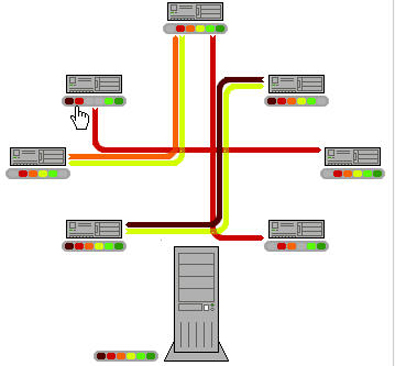No Government rules on packet throttling, blocking, colleague says on Capitol Hill

Colleague George Ou, who is not a proponent of most net neutrality regulations, stated his opinions before a Congressional staffer-panel on Network Management sponsored by iGrowthGlobal.
That outfit, whose board is full of board members who have served in a similar capacity on the Pox on consumer rights that is the Progress & Freedom Foundation, a group that declares as part of its goal that:
governments resist the temptation to regulate, tax and control. Government has important roles to play in society, including protecting property rights and individual liberties, but its tendency is to reach beyond its legitimate functions in ways that harm consumers, burden citizens and slow progress.
OK, so now that you know of iGrowthGlobal's heritage as a group that is afraid of tech regulations that will help consumers here and now, you might be further sensitized to a perception that George's honest feelings and related testimony, fit this hesitant-to-regulate, free market template.
In Goerge's own post this morning, he points to his testimony as noting that because today's broadband networks have modest capacity, some Torrent throttling is necessary as a traffic management tool. And that necessity means that it preferable that throttling, on the part of say, Comcast, should be a practice judged by the free market, rather than ruled by "Goverment."
George said:
Then I explained that Cable networks and Wireless networks are shared-medium networks that are constrained in capacity and that they weren’t built nor sold to be content servers for the rest of the Internet. Wireless networks are even more scarce in terms of capacity because of the scarcity of spectrum and many of the smaller ISPs would be put out of business if the Government made rules banning P2P throttling or P2P blocking.
Without those smaller wireless ISPs that cover the rural areas that the larger companies don’t want to cover, those Americans living in rural America would be cut off from the Internet and possibly even their phone service. We have plenty of choices on getting content but few choices on broadband carriers and the Government must keep this in mind when making network management policies.
A network management guru and diligent researcher as well as an esteemed colleague, George tends to favor market-based solutions. That's fine, but I don't.
Left lightly or non-regulated in the packets- preference realm, I fear the broadband Internet monopolists will strike deals with preferred content providers, and feel unrestrained to nickel and dime consumers with every fee their share-price boosting, avaricious nature will countenance.
[poll id=203]
